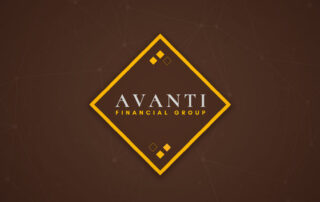Crypto as an Asset Class and Goldman’s Straw Man
In May 2020, Goldman Sachs’ Wealth Management division (GSWM) hosted an investment advisory call titled “US Economic Outlook & Implications of Current Policies for Inflation, Gold and Bitcoin.”
Crypto as an Asset Class and Goldman’s Straw Man
In May 2020, Goldman Sachs’ Wealth Management division (GSWM) hosted an investment advisory call titled “US Economic Outlook & Implications of Current Policies for Inflation, Gold and Bitcoin.”
JPMorgan releases a new update for its enterprise blockchain solution
Developed by JPMorgan, Quorum is a financial software platform built for the common adoption of blockchain across participants in the industry. It is an enterprise-focused solution and comes packaged as a permissioned blockchain infrastructure.
Avanti promises to bring Bitcoin ethos to banking
As the famous inscription on the genesis block foretold, Bitcoin has come to represent an existential threat to banks. Now Wall Street veteran Caitlin Long is promising to reinvent banking in the image of cryptocurrency.
London may overtake San Francisco as global FinTech hub
A new report published by global recruitment firm Robert Walters has revealed that London is rivalling San Francisco in high-value FinTech startup activity. If current trends continue, the report suggests that London may soon be home to more FinTech unicorns than San Francisco.
What’s next for blockchain?
Everyone got very excited a few years ago about blockchain technologies, the ledger system that was spawned by the arrival of bitcoin in 2009. It allows the recording of transactions to be automated and completely trusted, as the ledger system is tamperproof. The resulting excitement was that this could therefore replace many systems of contracts that are paper-based with smart, digital contracts.
Banking as usual is NOT an option
I’ve blogged quite a bit about adapting to change lately, and will continue to do so as banking-as-usual (BAU) is not an option. It’s similar to standing in the middle of the road. If you stand there for long enough, you’ll get run over. This is as true in banking: if you stop changing, you die. Now banks know this – they’re not stupid – and have been changing a lot over the past decades.
The FinTech outlook for 2018
I usually start the new year by making some predictions, but so many others have been writing about 2018 trends that I’m not going to. There are four big things for 2018 from a FinTech viewpoint that are obvious to me, however
Why Blockchain will revolutionize the banking industry
The banking industry, with all of the potential that blockchain technology offers for change, iteration, and development has been slow in its uptake of the new tech. That said, there’s no questioning whether blockchain technology will disrupt and revolutionize the banking industry. Leaders feel it coming. Some are ready. Most aren’t. But why and how is blockchain going to change banking over the next decade?
Mainstream bitcoin futures markets are coming
The age of Bitcoin investments going mainstream is nearly upon us, at least for traders in the US market. Last Wednesday, the highest-volume derivatives market in the world, CME Group, announced that it will open its Bitcoin Futures market on December 18th. The second largest market, the Chicago Board of Exchange (CBOE), then one-upped the CME and announced that they’ll be the first to launch Bitcoin futures trading on December 10th.
Will Sweden be the first cashless country?
As Sweden was the first European country to use cash for payments back in 1661 it’s unsurprising that it’s the first European country that wants to be cashless. This is why, for several years, I’ve been watching the regular speeches by Lars Nyberg, Deputy Governor of the Sweden’s central bank, the Riksbank, talking about eradicating the use of cash in Sweden. **February 2003** Cash is still the king. Given the rapid increase in the use of cards in Sweden, particularly in the late 1990’s, cash should have been expected to fall in importance. This, however, does not seem to have happened. The use of cash, measured as the ratio of the value of currency in circulation (M0) and GDP, fell during the first half of the decade, but have been fairly constant since then, lately even increasing somewhat.
Survival of the most adaptable
Wrapping up thoughts on #Money2020, the Vegas show is by far the biggest of this monster event organising company. I’m guessing there were around 15,000 folks there this year, and everything but everything was being covered: AI, machine learning, mobile wallets, core banking, distributed ledger, blockchain, cryptocurrencies and just about every other aspect of making and taking payments. Usually the keynotes on the plenary stage don’t impress me much, as they’re just product pitches, but a few did stand out this year. I was particularly impressed by the content of Oliver Jenkyn’s presentation. Oliver is EVP & Group Executive, North America for Visa and I usually hate Visa’s content. But Oliver began by talking about a messaging conversation he had with his ten-year-old daughter that finished with her asking:
Why bankers only see horses and technologists are creating cars
I was at a large bank’s wealth management conference recently, where the CEO was being quizzed about various areas including a lot about technology and FinTech. He made several statements that I noted with interest: “Roboadvisory services improves our speed-to-market and human productivity, but does not replace humans. In particular, I can see that artificial intelligence (AI) and machine learning makes it far easier for us to comply with and implement regulations and deal with regulatory change in the back office.”
A global currency is coming, whether you like it or not
Continuing yesterday’s discussions about a big bank’s conference, I was intrigued at how often the subject of cryptocurrencies and bitcoin came up. But there again, it’s a topical thing at the moment with the price of bitcoins surging past the $4,000 mark and Goldman Sachs going against JP Morgan, and saying that they might even trade in it. The conversation at this particular large bank’s meeting went along the lines of bitcoin being a broken model, it’s a bubble and you should definitely not invest in it. The reason for not investing is based upon two major factors.
The Bank for International Settlements explores Central Bank Cryptocurrencies
The Central Bank of Central Banks, Switzerland’s Bank for International Settlements (BIS), released a report on Sunday that looks at central bank cryptocurrencies (CBCCs), and if they would they be useful. The 17-page report, titled “Central Bank Cryptocurrencies,” was co-written by Morten Bech and UC Santa Barbara’s Rodney Garratt.
Give Commercial Banks Some Credit: Commercial Bank Money, Cryptocurrencies, and CBDC Regimes
The potential benefits that distributed ledger technology can bring to payments within regulated regimes have led to increased interest in DLT from central banks around the word. When considering the potential impact and applications of cryptocurrencies and central bank-issued digital currencies (CBDCs), however, an understanding of commercial bank money and credit creation is imperative.














